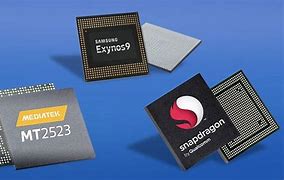.webp)
The Mystery about Phone Processors
Unlocking the Brain of Your Smartphone: Understanding Mobile Phone Processors

06 Dec, 2024
Share
Save
A processor, also known as the Central Processing Unit (CPU) also referred to as System on Chip (SoC), in simple terms, the CPU is the brain of any computer; it processes data and coordinates the functioning of other hardware components.
Now, let’s get back in time to when the first microprocessor was invented and by who. The first Microprocessor, the Intel 4004, was released in 1971 and was created by Ted Hoff, Stanley Mazor and Federico Faggin and it was the size of a fingernail. The 4004 was advertised as a ‘Computer on a Chip’ and it was capable of improving some applications that included calculators. The microprocessor has so far led to the development of various consumer products like automatic teller machines, industrial robots, hospital equipment, television sets, and electronic games, among others.
Over the years, the form, design and implementation of CPUs have changed over time, but their fundamental operation remains unchanged.
Back to the Mobile Phone CPU, a smartphone processor functions as the central nervous system. The processor orchestrates the myriad tasks that make our phones so versatile. Think of it as a highly efficient manager, tirelessly handling instructions from the phone’s software to ensure a smooth operation. Its key functions in your device are; fetching instructions from memory, decoding the instructions, executing the instructions, and storing the results back in memory.
Besides managing your daily operations, processors house a Graphics Processing Unit (GPU) that is responsible for handling graphics-intensive tasks like gaming and multimedia applications.
The CPU affects app functionality, multitasking, running complex apps and your battery life. This simply implies that a CPU either makes your mobile phone very fast and responsive or very slow and responsive, hence making it an important yet hard task to choose a device with a good processor.
Types of Android Mobile Processors
Qualcomm Snapdragon Processor: Snap Dragon is a suite of SoC semiconductor products for mobile devices designed and marketed by Qualcomm. These are known for powering many of the world’s leading smartphones and for their exceptional performance.
MediaTek Processor: These are Taiwanese fabless semiconductor company that designs and manufacture a range of semiconductor products, providing chips for wireless communications. MediaTek’s various processors run your phone’s application smoothly, hence fulfilling your daily requirements.
Exynos Processor: This is a series of ARM-based SOC developed by Samsung Electronics’ system LSI division and manufactured by Samsung Foundry. This processor is also cost-friendly.
Kirin Processor: This is a product of Huawei’s HiSilicon, a subsidiary that produces chipsets. This processor offers a high performance. The Kirin processors often have designed cores that aim at optimizing performance for Huawei devices.
Apple Silicon: A series of SoC and system-in-package (Sip) processors designed by Apple Inc. mainly using the ARM architecture. They are the basis of Mac, iPhone, iPad, Apple TVs, apple watches, air pods… The list is endless.
In the next article, we shall have detailed information about these processors.
In conclusion; a processor in any mobile phone is the cornerstone of its functionality. Processors dictate everything from basic to advanced computing tasks.
About the author
Tech Enthusiast and writer, Digital Marketer and Journalist. I am here to help, get in touch.





